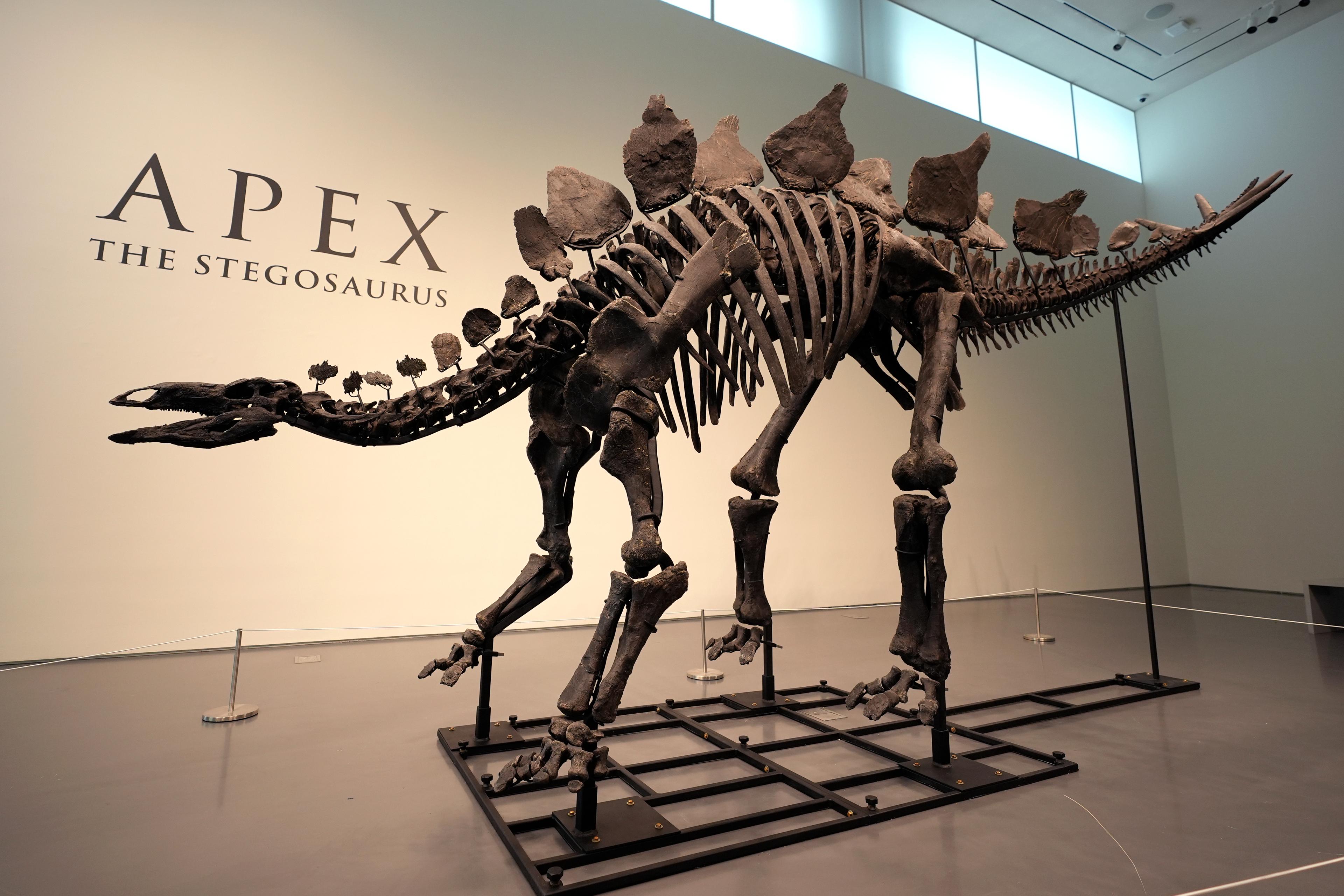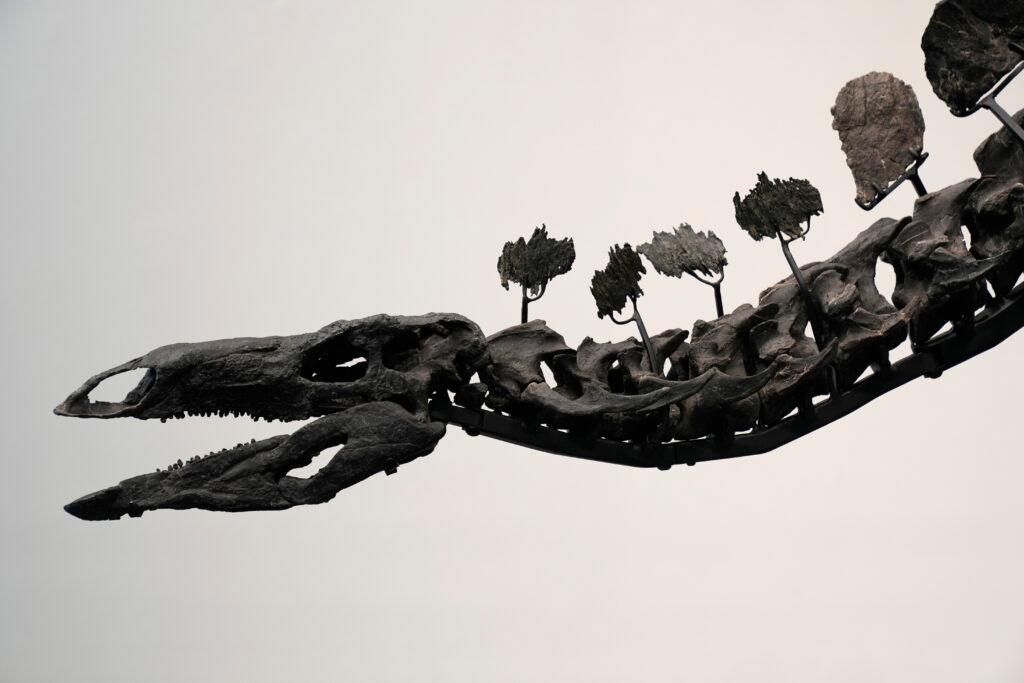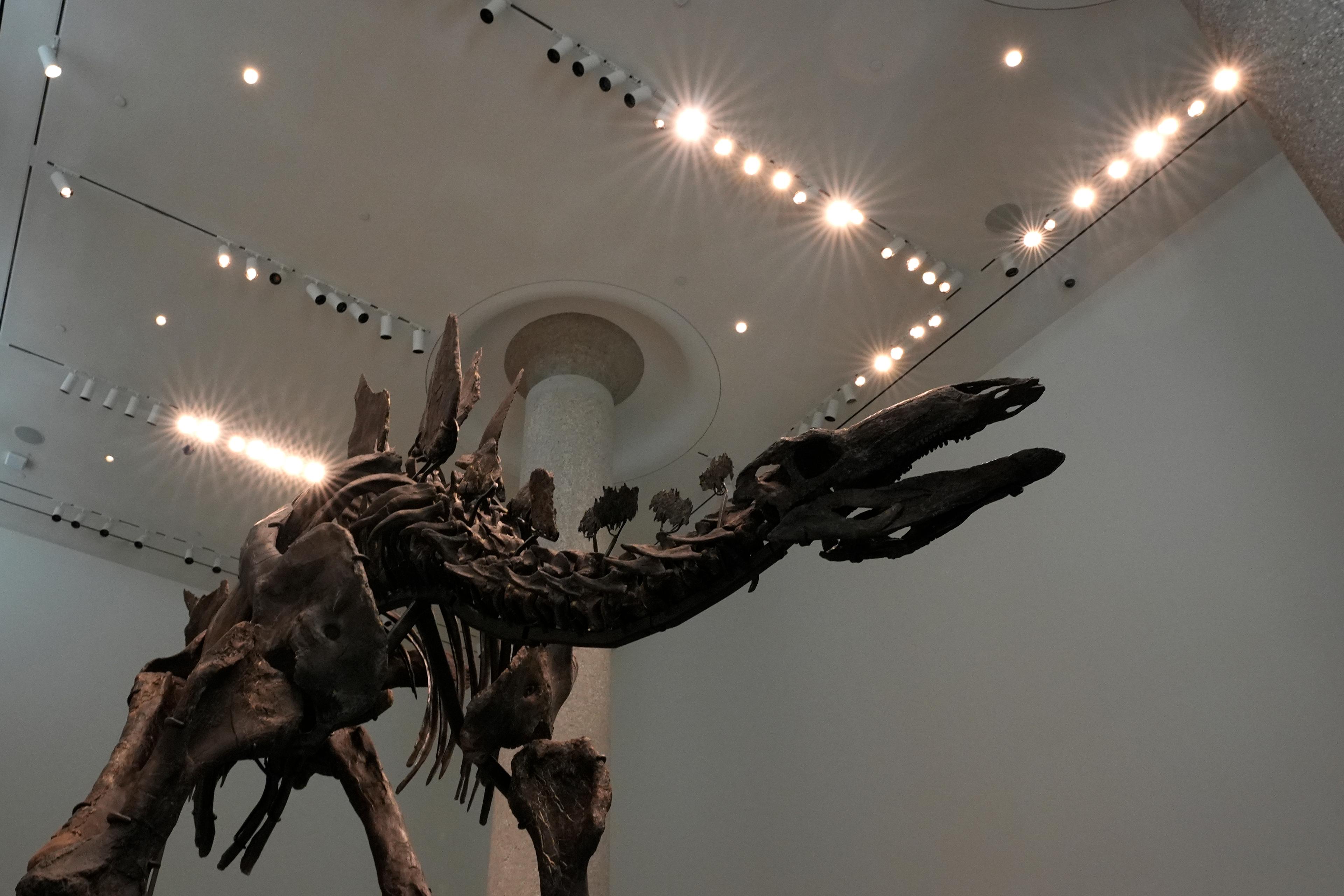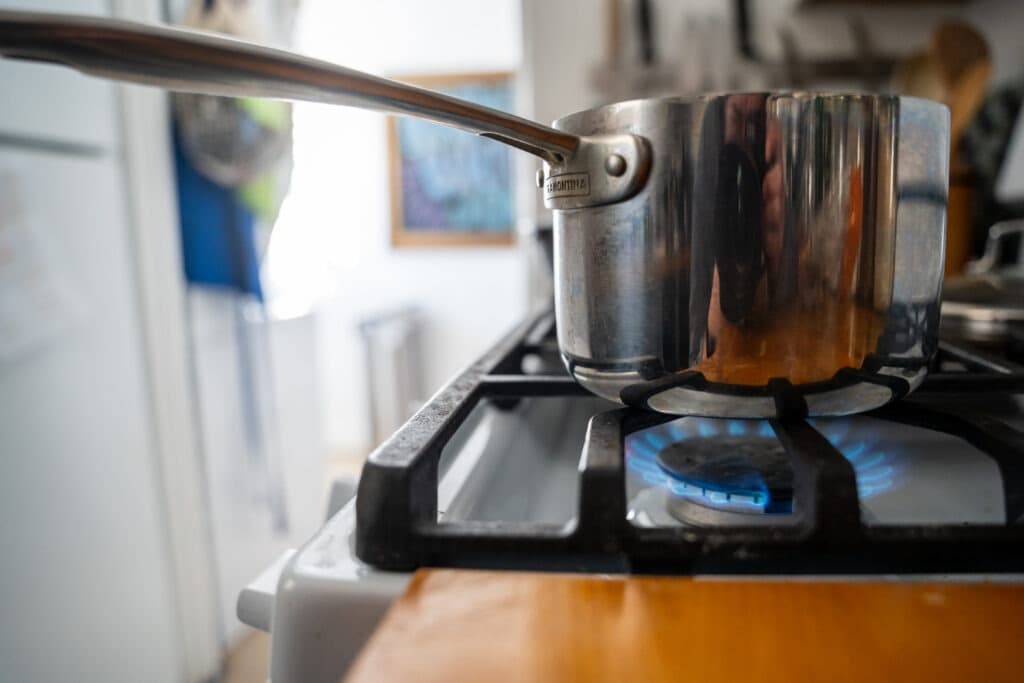
A massive Colorado fossil has sold for a record $44.6 million at auction. The nearly complete stegosaurus named "Apex" was found in 2022 and was excavated last year.
A commercial paleontologist named Jason Cooper discovered the fossil on his in Moffat County property near, perhaps unsurprisingly, the town of Dinosaur, Colorado. The tiny community is near Dinosaur National Monument and the Utah border.
During the Jurassic period, the massive, four-legged creatures with kite-shaped plates along their back roamed the Earth. Now, some 150 million years later, these skeletal remains have become the most valuable fossil ever sold at auction.
Sotheby’s had expected "Apex" to fetch $4 million to $6 million — a hefty sum but no where near the final result. The $44.6 million blew past a prior auction record for dinosaur fossils — $31.8 million for the remains of a Tyrannosaurus rex nicknamed Stan, sold in 2020.
Apex "has now taken its place in history, some 150 million years since it roamed the planet,” said Cassandra Hatton, who heads Sotheby’s science-related business.
Dinosaur fossil sales stir some frustration among academic paleontologists who feel the specimens belong in museums or research centers that can't afford huge auction prices.
Sotheby's said the anonymous buyer is American and intends to look into loaning Apex to an institution in the U.S. The purchaser beat out six other bidders.

The stegosaurus was one of the world's most distinctive dinosaurs, featuring pointy plates on its back. Hatton has called Apex “a coloring book dinosaur,” for its well-preserved features.
Eleven feet (3.3 meters) tall and 27 feet (8.2 meters) nose to tail, Apex was a big stegosaurus that lived long enough to show signs of arthritis, Sotheby's said. It's is also considered one of the most complete skeletal structures of its kind.
Paleontologist Cary Woodruff was among the scientists who viewed the specimen at the dig site in Colorado where it was discovered.
NPR's Andrew Mambo talked with Woodruff last month ahead of the auction. Woodruff is also a curator at the Phillip and Patricia Frost Museum of Science in Miami.
This interview has been edited for clarity and length.
Cary Woodruff: The first time I saw the specimen, I was with the individual who had collected it out at the quarry where it was found in Colorado. And the rock was incredibly hard. So, it never is like Jurassic Park, but it wasn't like some beautiful laid out skeleton and oh my gosh you could see the whole thing clear as day. But at least I remember, you know, peering. There's part of a stegosaurus here. And again, even for any fossil it's really kind of magical to see this almost like an ugly duckling, too, for any fossil to see it from this preparation process to the end result. You know, it's always very special for a scientist.
Andrew Mambo: So Sotheby's is auctioning off this stegosaurus fossil on July 17. The auction house estimates it'll go for somewhere between $4 million and $6 million. How do they put a monetary value on something like a dinosaur fossil?
Woodruff: Speaking as a scientist, fossils have no monetary value. You know, these numbers are largely arbitrary. I mean, every fossil literally is unique. And I'm not just saying that, as the starry-eyed scientist. Like, there are no two of the exact same animals. I don't think fossils should be allowed to be auctioned. And these auctions really continue to deepen the divide between what we would consider academic and commercial paleontology.

Mambo: I have read about people also donating and having replicas and not having the exact fossil itself. Can you talk a bit about that? Is that a viable way forward?
Woodruff: I think replicas are the best way possible. I mean, how many of us have a copy of a painting at our home or something? You know the real ones that you can see in a museum? And if some wealthy person is adamant they want to buy this dinosaur being auctioned, that they were adamant they wanted to get this specimen and scientifically see it succeed, and they wanted to donate it to, in this example, a museum, we'll have a cast that we'll put up in your living room. Then you can literally showcase it and brag to all your friends and say, "Go to the museum and see the real one, and I was able to put it in that museum."
NPR reached out to Sotheby's Senior Vice President and Global Head of Science and Pop Culture Cassandra Hatton to respond to criticism of auctions of fossil specimens on July 10.
"Losing scientifically important fossils to a private collection is a concern often mentioned, but in our experience, we have yet to see it materialize," Hatton said. "We find that clients overwhelmingly purchase specimens either for museums or donate them."
NPR's Andrew Mambo contributed to this story.









